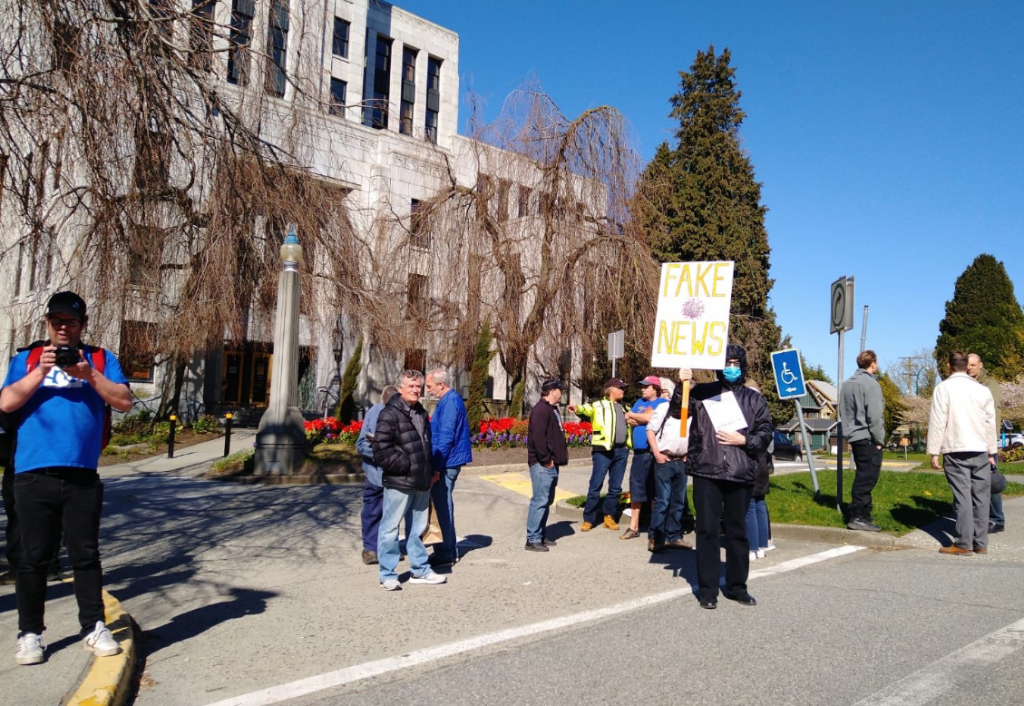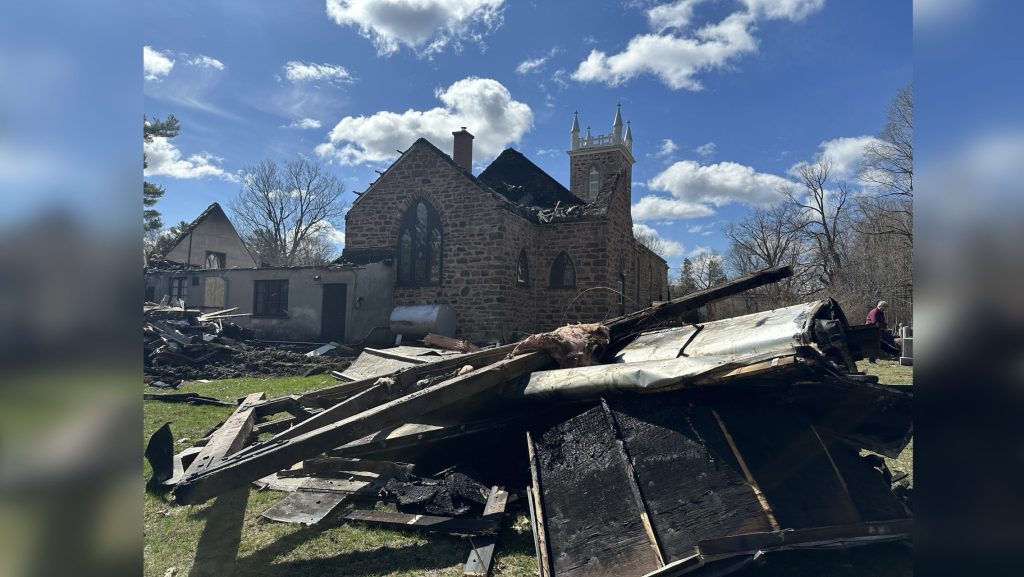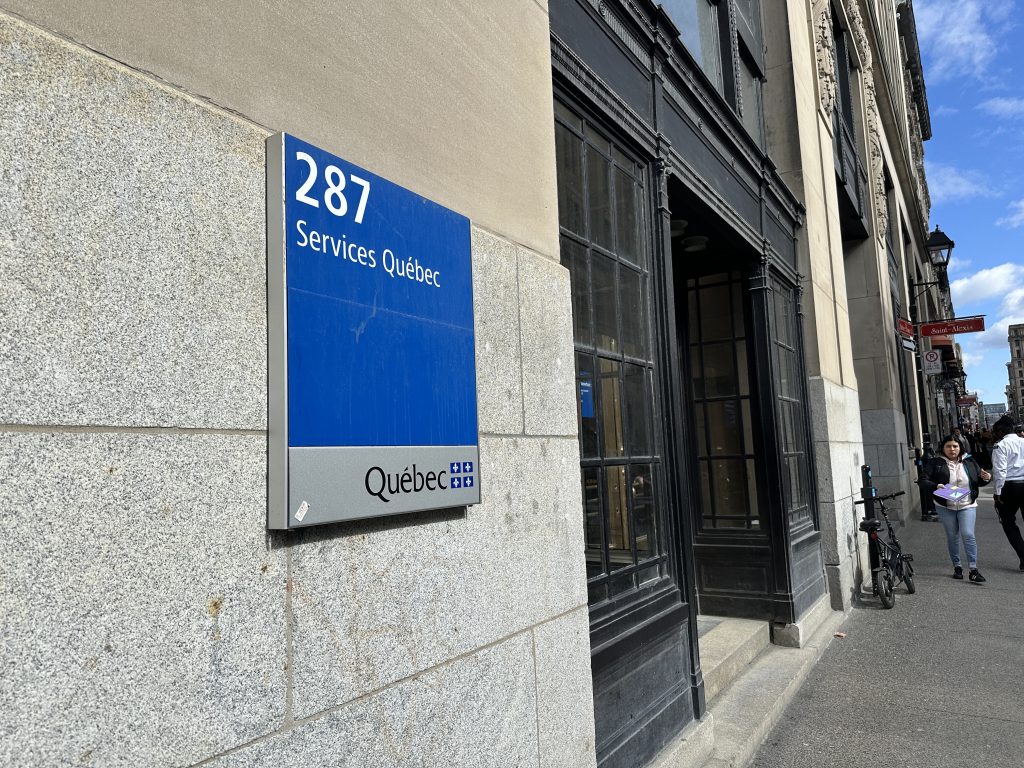With COVID-19 conspiracy theories rampant online, expert says only cure is better education, early

Posted April 13, 2020 12:45 pm.
Last Updated April 13, 2020 5:59 pm.
VANCOUVER (NEWS 1130) – From “the virus doesn’t exist” to “the pandemic was choreographed by world leaders,” there’s no shortage of conspiracy theories about COVID-19, especially on social media.
An expert says it’s unfortunately hard to get people to change their minds.
“Conspiracy theories are easy to understand,” explains Colin Furness, an Infection Control Epidemiologist and Associate Professor at the Faculty of Information at the University of Toronto. He says a person’s upbringing can make them more or less susceptible to believing conspiracy theories, too.
“It doesn’t require studying, it doesn’t require background knowledge, it just requires the idea that you have good guys and bad guys. So you can say, ‘Well, bad guys are making this happen. It’s not science. It’s bad guys.'”
Furness says there are “different flavours of misinformation,” and says disinformation is more deliberate and is usually first spread by people aiming to mislead others.
“When you’re looking at something as extreme as conspiracy theories, I think you need more than the idea of broken telephone,” he tells NEWS 1130. “The way I try and explain is, people, as human beings, are sense makers, alright? So when something is happening in our world, no matter what our knowledge base is, no matter what information we have access to, we are going to explain it, we are going to find a way to explain it.”
He says that’s where your education can come into play — when it comes to whether you’re more or less likely to jump on the bandwagon.
Over the weekend, pictures and videos of a march in Vancouver were widely shared on social media. Those taking part shared conspiracy theories on signs and through chants, as they protested what they called unlawful orders, quarantines, and lockdowns.
A friend sent me this… looks to be some foolishness happening at Vancouver city hall right now @NEWS1130 #StayHomeSaveLives pic.twitter.com/6ofQTUfFn7
— Kurtis Doering (@KDnewsguy) April 12, 2020
Furness notes as the pandemic drags on, it’s likely we’ll see more and more conspiracy theories surface.
“That’s actually not a surprise,” he says, however, he doubts there are more people who used to believe in scientific explanations around the coronavirus outbreak who are now believing in conspiracy theories.
“My prediction is, actually, you’ve got a small number of people who are making more and more noise, but you’re not having people come out of the woodwork who said, ‘Well I used to think that the doctors and scientists were right, and now I think it’s a conspiracy theory.’ That would be unlikely in my mind.”
So how do you fight back against conspiracy theories? Furness says you can’t get into another person’s mind to understand what they’re thinking, but he believes in a situation as critical as the one we’re in right now, with public health on the line, consequences should be considered for those who are willingly spreading false information.
“I’m not a lawyer or police officer, so I don’t know the best way to handle it,” Furness admits. “It’s illegal to go to a movie theatre and shout ‘fire!’ because you endanger the people around you. And that’s that classic thing of what are the limits of individual liberty. I think anyone who is wandering around saying this is a conspiracy theory and inciting other people to behave in unsafe ways, they should be charged.”
When it comes to changing behaviour, Furness says the best course of action is to start young.
“You can’t fix misinformation or misunderstanding with more information. That’s doesn’t work,” he says. “…The only cure we have for this sort of thing is education, and education as children … Most adults don’t know the difference between a virus and a bacterium, but most of the planet’s biomass is viral and bacterial. So if we live on a bacterial planet, how is it that we don’t teach this stuff?”
Of course, he doesn’t expect every child to be taught at the same level as a microbiologist, however, he believes basic literacy on this topic is important.
“Because if you have that as a child, then you would be quite impervious to these sorts of things as you got older,” Furness says.



